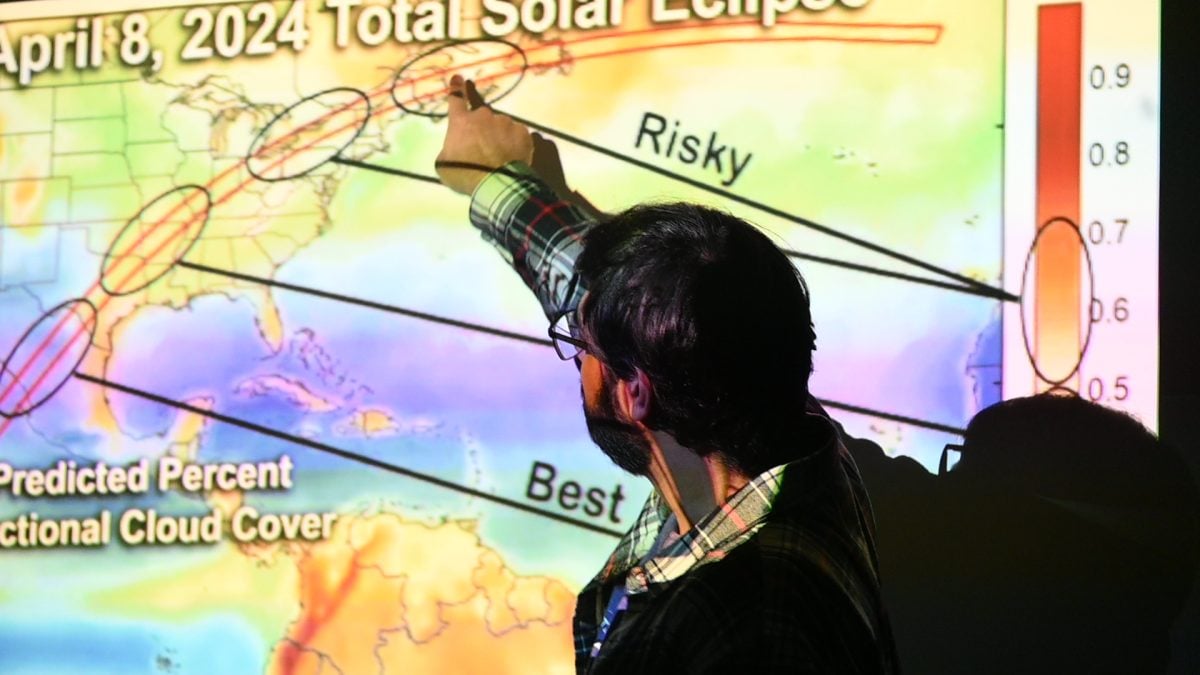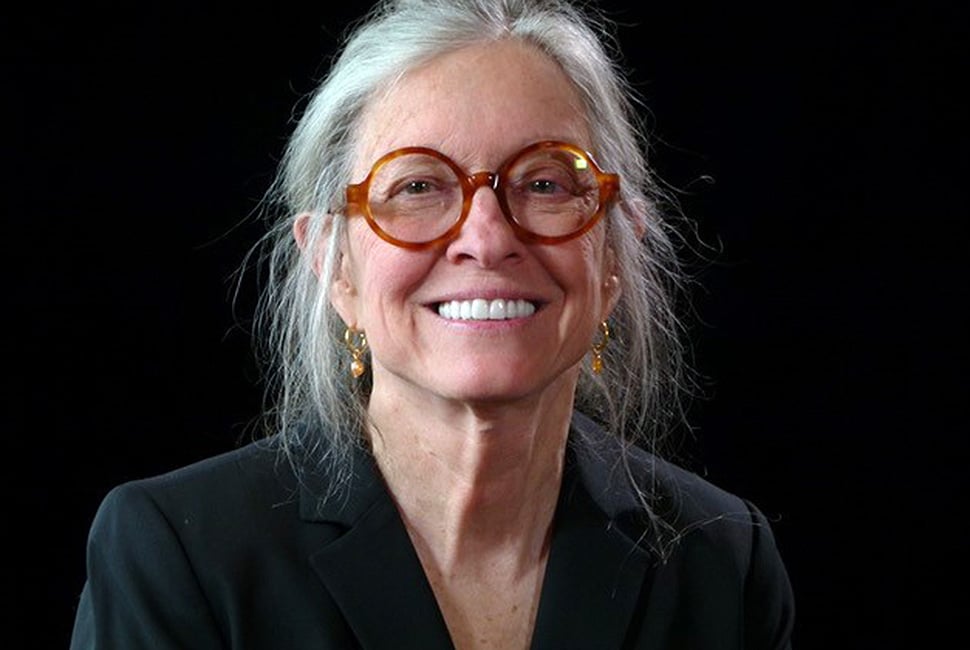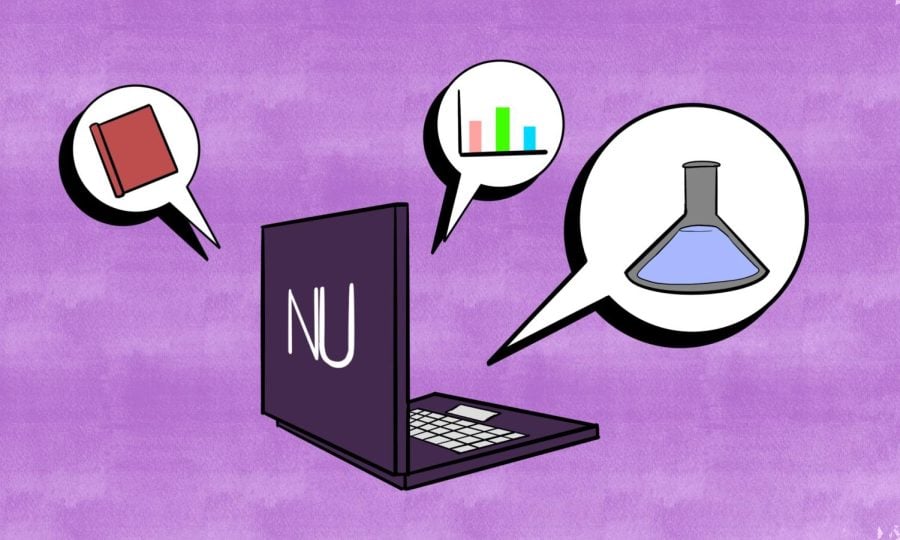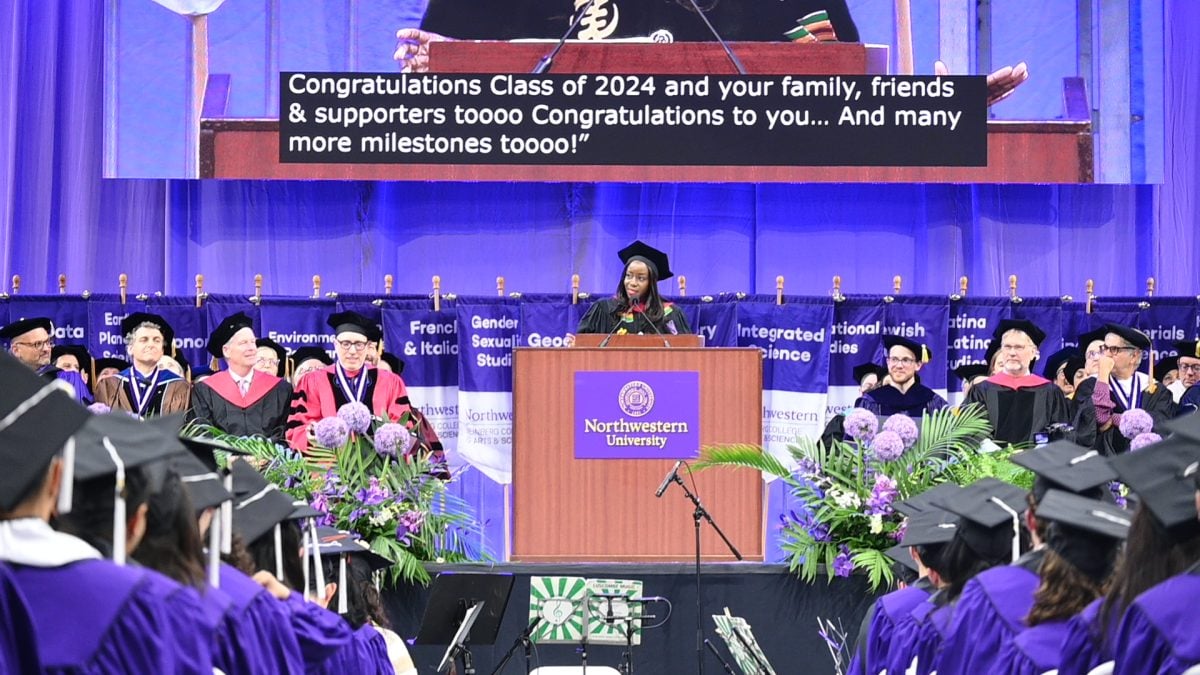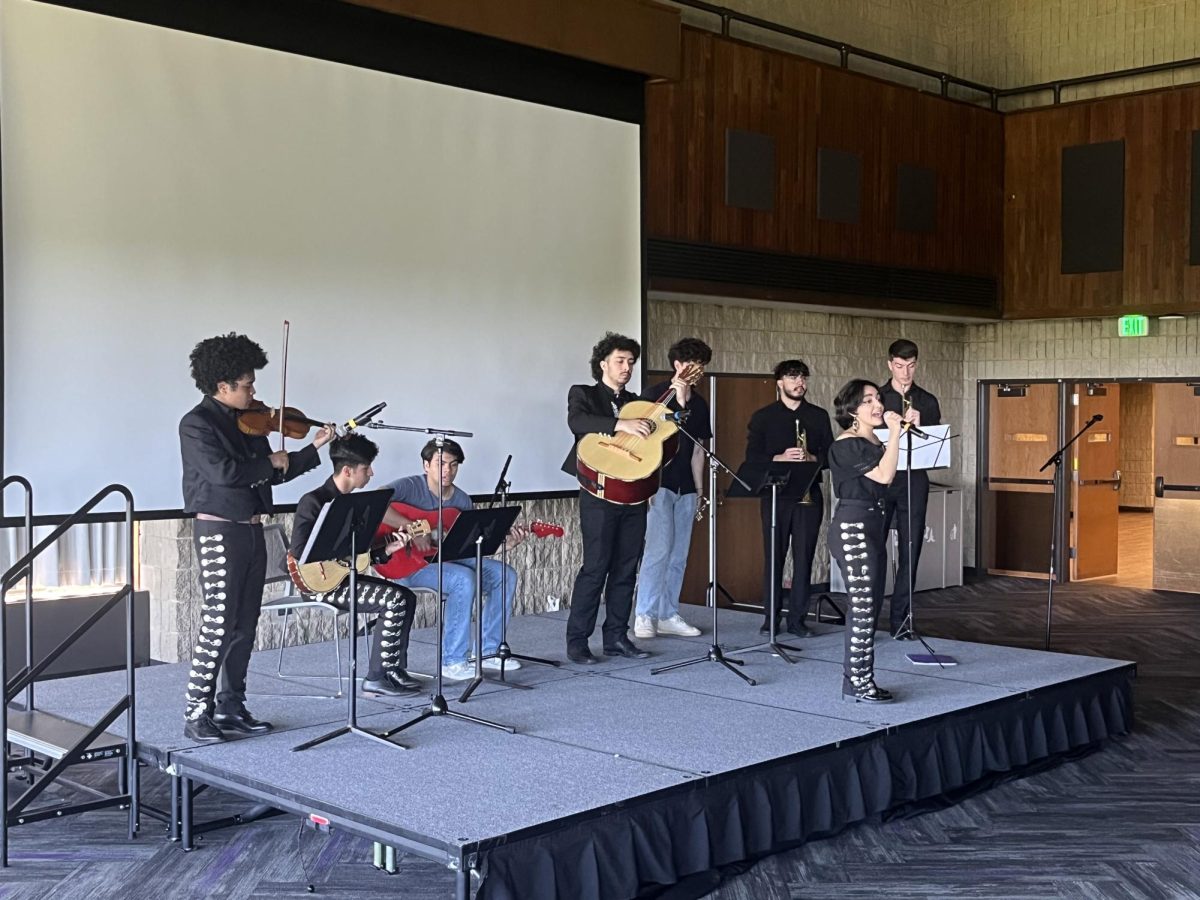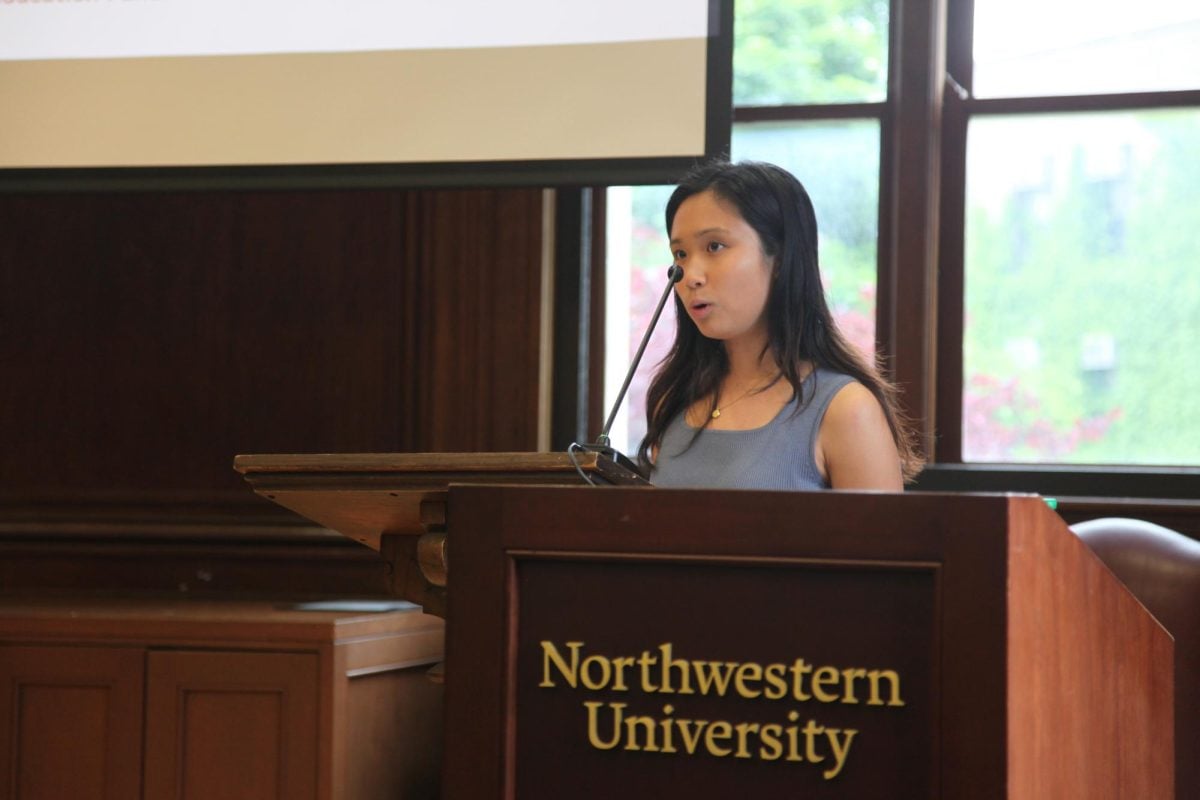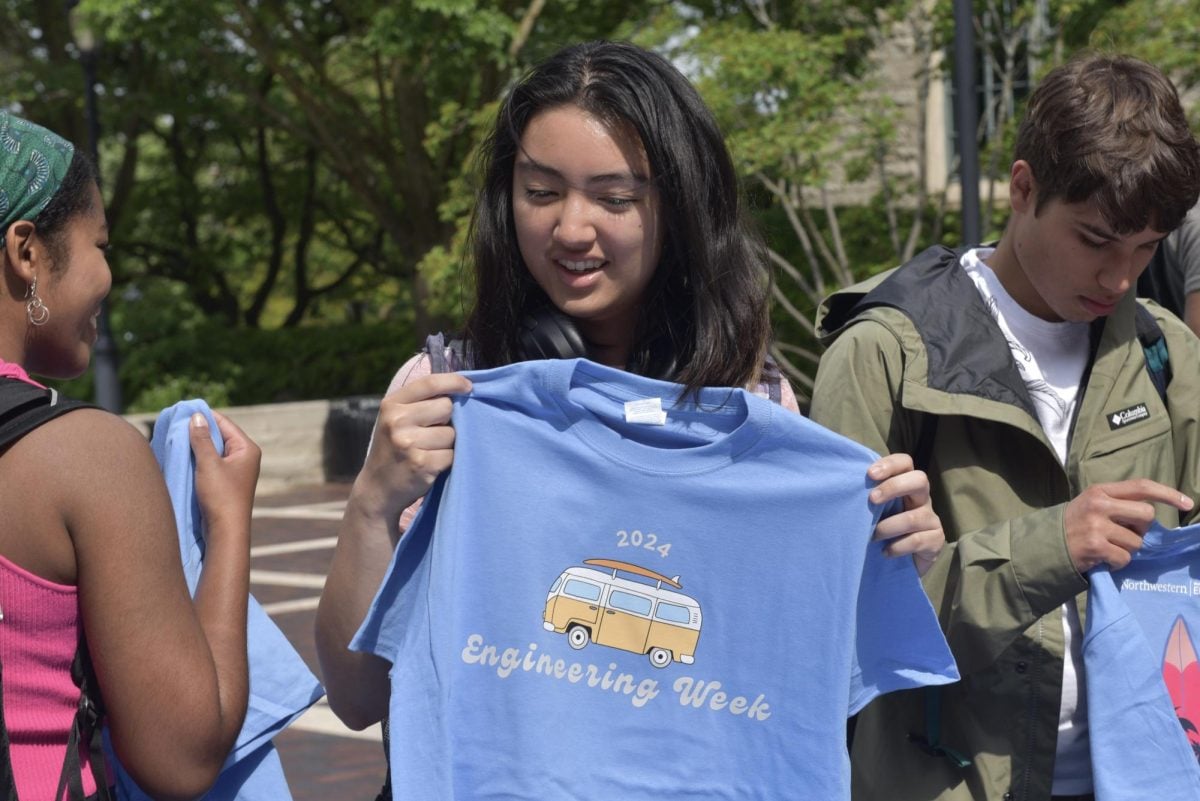Intersex advocate Pidgeon Pagonis detailed their activism and the intersex bodily autonomy movement on Monday in Fisk Hall.
The event comes as part of the Center for Awareness, Response & Education’s annual Sexual Assault Action Month aimed to spread awareness of the causes and effects of sexual assault as well as to provide prevention and support to sexual assault survivors.
This year’s SAAM — rebranded from Sexual Assault Awareness Month — centered on the theme: “Our Bodies Belong to Us.”
Pagonis is an American intersex activist, speaker, photographer and filmmaker. Their advocacy work focuses on uncovering human rights violations toward intersex people and preventing non-consensual, irreversible medical procedures performed on them.
Intersex is an “umbrella term for variations in sex traits or reproductive anatomy,” according to interACT: Advocates for Intersex Youth, a nonprofit advocating for the rights of children born with intersex traits.
Pagonis displayed their documentary titled “A Normal Girl,” highlighting the struggles faced by intersex people through their own story.
“One of the main biggest characteristics of intersex (people) is that we are invisibilized,” Pagonis said.
Pagonis said when challenges to sexual boundaries first emerged in history, many Western medical and scientific communities attempted to enforce rigid ideas of sex and gender.
Today’s society is still clinging onto these “outdated rigid concepts of gender as a binary,” they said.
“I don’t trust when something is presented to me or society as progress because sometimes progress can be a double-edged sword,” Pagonis said. “Intersex people and others were labeled in this field of teratology and seen by science and medicine as something to fix … a broken man, a broken woman.”
The center of the issue stems from the conversation between bodily autonomy and consent, they said.
Pagonis invited the audience to consider how they have autonomy over their actions and beliefs. They said they’d never been given autonomy over the genital surgeries they received as an infant.
“My voice was absent from the entire step,” Pagonis said. “Not once did anybody ever ask me what I wanted for myself.”
Pagonis said many intersex people still face shame and stressful circumstances from the stigma surrounding them in society. The answer, they said, is to “allow people to give consent.”
CARE’s Assistant Director of Sexual Violence Response Services Katelyn Kennon, who helped organize the event, said she invited Pagonis because their advocacy focus on bodily autonomy fit the theme of SAAM.
“Many survivors of sexual violence have a really hard time in the medical setting, and people with medical trauma experienced similar symptoms to sexual violence trauma survivors,” Kennon said. “So I really appreciated them drawing those parallels and helping us broaden how we think about the concept of consent, helping us broaden what we might think of as prevention.”
Closing out the event, Pagonis opened up the floor for a Q&A session. They also handed out free copies of “Nobody Needs to Know: A Memoir” to attendees.
Medill junior Max Sullivan, who uses ze/hir pronouns, said ze enjoyed hearing Pagonis speak about constitutive autonomy and how various systems of oppression inhibit independent and informed choices made in the world.
“Having a word to reference and a guiding point or a North Star to move through other conversation and ideas is always very helpful,” Sullivan said. “That is definitely going to stick with me.”
Email: [email protected]
X: @Jerrwu
Related Stories:
— Menstrual Equity Activists, Saalt host workshop on sustainable menstruation
— NU Menstrual Equity Activists keep the period products flowing with campus drive













